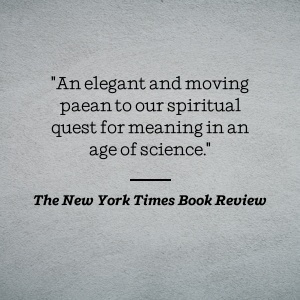

Full description not available



L**A
A scientist's religious experiences
This is an important book chronicling a leading scientist's meditations on God. Lightman's credentials as a physicist are without doubt. (His book on radiative processes is in every practising astrophysicist's library.) So when he says that he had a mystical experience one summer night on an island in Maine, we need to sit up and listen. In this book Lightman starts with this mystical experience to analyse man's need for the Absolute and for permanence, on his way touching upon topics such as origins of the Universe, death, doctrine, and faith. Religion-vs-science debates are often uncivil these days, particularly in the West, so it is reassuring to read quiet musings on the topic written by a sattvika mind such as Lightman's. The book also suggests a natural oneness of all religious experience regardless of denomination. We need this understanding in today's world. It is also refreshing to see Indian references scattered through the book. Classical Indian thought is important for all religion-vs-science thinkers because this distinction between the two areas does not really exist in Indian way of thinking. Lightman quotes Tagore, the Rig Veda, and the Matsya Purana. He also quotes Romain Rolland's "oceanic feeling", which Romain used to describe the mystical experience of Sri Ramakrishna. This should be applauded. However, as a Hindu, I did note, with disappointment but not surprise, that Lightman's understanding of Hinduism is not as deep as it could be. He tries to neatly separate Hinduism and Buddhism (as all Westerners try to do) and upon failing to do that applies restrictions on Hinduism that seem unfair and a bit disreputable. (Also, I wish Lightman had used the Sanskrit word samādhi. I hope he knows it.) Still this is an important and well-written book. Recommended.
Trustpilot
1 month ago
1 week ago